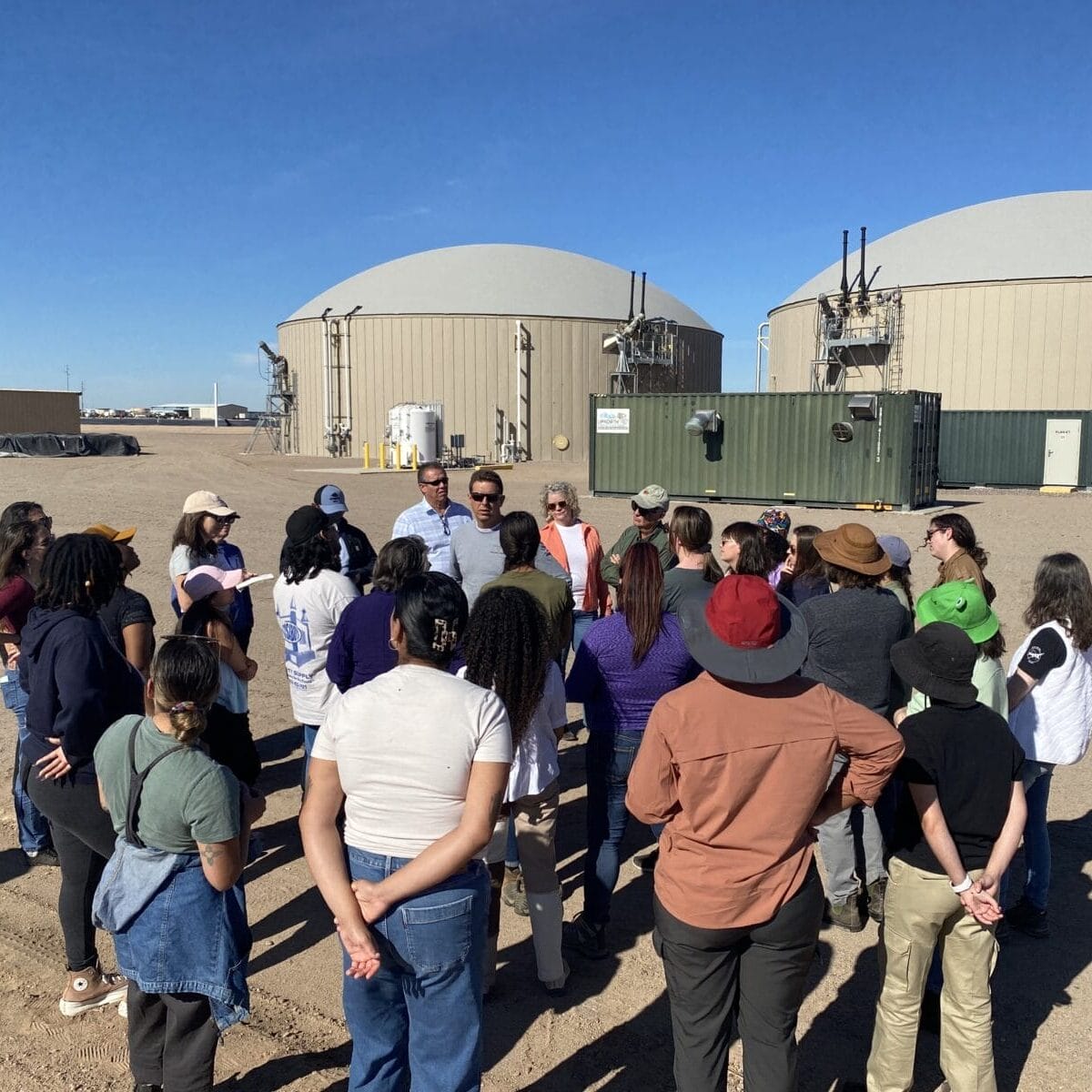
By Casey White, ASU sustainable food systems graduate student
Paloma Dairy host and farm owner Robert Van Hofwegen, Sr, begins our tour with a hint of fire and brimstone, “This is not a factory.” Being an industry deeply entwined in family lifestyles and directly responsible for the production of food that fuels us every day, hot topics in agriculture are bound to arise with any farm visit - the term “factory farm” being a point of contention among farmers and agriculture professionals. This quip is often coined as a tongue-in-cheek snark towards CAFO farms (Confined Animal Feeding Operations) but is typically felt and intended as an insult. Robert is correct - Paloma Dairy is not a factory. It is, however, a hopping city of cows in the remote desert of Gila Bend, Arizona.
Fourth and fifth-generation farmers, the Van Hofwegen family boasts one of the largest dairies in the United States, housing a total of nearly 16,000 cattle in various stages of growth and lactation. An on-farm veterinarian ensures optimal health for cows bred and fed for an industry where pounds of milk per cow determine the margin between profit and loss. Grains are grown under the name Sunset Farms on land surrounding the dairy using water-saving irrigation practices to produce feed locally, reducing the need for fossil-fuel-propelled trucking to bring in out-of-area diets.

Arie Van Hofwegen, Rob’s son and one of eight family members on the farm, shared Paloma Dairy’s own twist on fuel. Sunoma Renewable Biofuels, an incorporated company under the Paloma Dairy family umbrella encompasses the methane digester that converts thousands of pounds of fresh manure into clean, carbon-negative natural gas sold into the fuel market. Per the Paloma Dairy Instagram page, product from this facility is estimated to prevent 54,000 metric tons of carbon equivalent from entering our atmosphere, creating an extra outlet of income and sustainability for the farm.
Although the farm makes many steps towards sustainability on their farm, by way of economics, social and environmental paths, Arie is hesitant to consider themselves a regenerative operation, stating, “I don’t think we’re quite at that point yet,” showing that farmers feel motivated to continually do more and do better every day for their livestock, water, and land.
This blog is part of a series from the Swette Center's annual Arizona Food and Farm Immersion, a required course in their two graduate programs. Students tour the state, meeting with farmers, ranchers, entrepreneurs, government staff, and non-profit leaders.